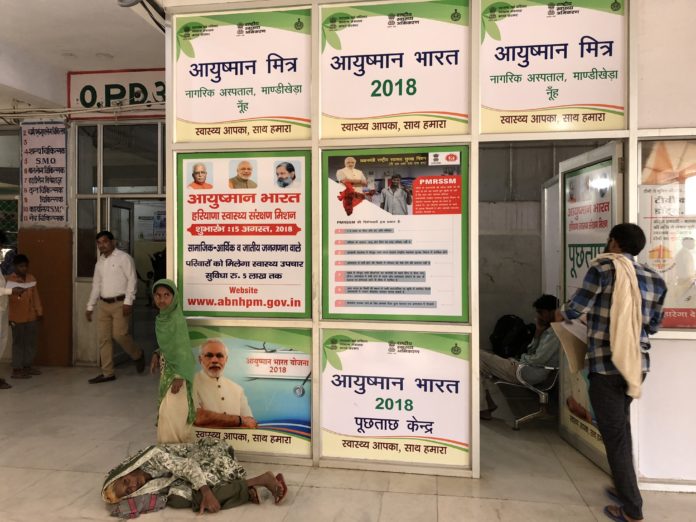
Experts and government officials agree on importance of PMJAY data in framing public health policies, emphasise importance of data protection
Experts from the government and non-government sectors talked about the importance of big data in health policy making and for India particularly the new avenues that have opened up following the launch of the Pradhan Mantri Jan Arogya Yojana (PMJAY). PMJAY is the secondary and tertiary care arm of Ayushman Bharat, the flagship health programme of the government of India.
Dr. Shekhar Shah, Director-General NCAER said, “The large volume of clinical data generated by the scheme, if suitably anonymised, can be used to develop targeted, cost-effective public health programmes. The data will also help researchers in analysing disease outbreaks, causes and plausible measures for mitigation. We are sitting on a pile of gold, waiting to be used.”
“Before anything else we need to sensitise and reassure people about the prudent, careful and anonymised used of data generated from governmental initiatives and develop standardised procedures that ensure no misuse of such large amounts of information”
He was speaking at a panel discussion on ‘Leveraging Big Data to Inform Research and Improve Public Health Policy’ organised by NCAER, the Bill & Melinda Gates Foundation and Global Health Strategies in New Delhi today. The discussion was held amid growing realization about the importance of using clinical, survey and administrative data for developing public health policies and shaping national health agendas.
Dr. Indu Bhushan, CEO, Ayushman Bharat said: “Traditionally data has been viewed from the colored vision of security breaches and impeachment of privacy. Before anything else we need to sensitise and reassure people about the prudent, careful and anonymised used of data generated from governmental initiatives and develop standardised procedures that ensure no misuse of such large amounts of information”
The discussion began with with key note addresses by Dr. Maurício Barreto, Executive Director, CIDACS, The Center for Data Integration and Knowledge for Health, Brazil and Dr. Anurag Agrawal, Director CSIR Institute of Genomics & Integrative Biology who dwelt on the experiences of Brazil and India in the field of big data and its contributions to health policy reform.
Subsequently, leaders in the fields of public health research and policy discussed opportunities for multi sectoral collaborations and the need for building capacities for leveraging big data analysis. Panelists deliberated on the drivers of evidence use in public policy formulation in India. They underscored the importance of using research and administrative data analysis to identify policy priorities and suggest targeted use of available resources for improving health outcomes.
Alok Kumar, Adviser NITI Aayog, said, “The need for cross-functional collaboration is now more than ever. As we grapple with new diseases and outbreaks globally, it is of utmost importance that science, policy, research and data are all viewed from the singular lens of informing public policy. Only then can we attain a comprehensive developmental and growth agenda”.













